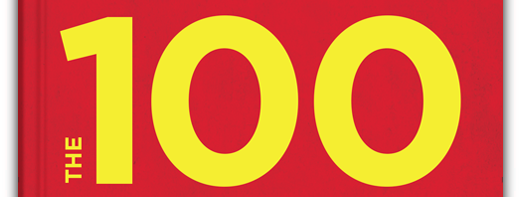Thoughts from The 100: Living Your Best Life
 This is the first of a series of posts with additional thoughts, examples, and insights from my book, The 100.
This is the first of a series of posts with additional thoughts, examples, and insights from my book, The 100.
Ever dreamed of quitting your job and “reinventing” yourself? If so, you’re not alone.
According to an intriguing article in this month’s Atlantic Monthly, by former National Public Radio journalist Barbara Bradley Haggerty, only one-third of Baby Boomers and GenXers are engaged by their work.
Haggerty quotes Jim Harter, a chief scientist for workplace management and well-being at the Gallup polling organization, who says about half of the remaining working Baby Boomers and GenXers are “not engaged” at work. “They show up, get their paycheck and do the minimum amount required,” says Harter, which he describes as “a pretty desperate state.”
Desperate indeed!
We spend a good chunk of our lives working. Why not make our work lives engaging and – radical notion – use work to enhance the overall quality of our lives?
That radical notion lies at the heart of how I view my work and how I’ve structured my company. “Work should give life, not take it” according to The E-Myth author Michael Gerber. Since reading The E-Myth a couple of decades ago, I’ve worked to make Intertech a place that gives life: to employees, to clients, to our community and to my partners and to me.
How do we do this?
It really boils down to working in ways that keep everyone engaged and encouraging healthy work-life balance. Later in this blog I’ll share how Intertech builds employee engagement and work-life balance into the very fabric of our company. But today and for my next several posts, I’m going to focus on the broader topic of “living your best life.” If you own a business or manage people –or even if you live alone in the woods painting acorns— I hope you’ll find some of my ideas and tips useful.
Tip #1: Learn from happy people
Check out the book “What Happy Know” by Dan Baker. I’m happy I did! Baker debunks the myth that money makes people happy and reveals the authentic status symbols of happy people: a happy family, good friends and pride in their work.
Obviously happy families and good friends don’t simply materialize. We have to build healthy relationships over time, and work on ourselves if we have issues that make relationships tough. Myriad resources – books, workshops, and therapists – exist to help heal and build relationships. While I’m blessed with a wonderful wife and great kids, I’m certainly not qualified to advise anyone else on personal matters.
But pride at work is something I feel qualified to comment on. I see it everyday in the people who work at Intertech. They are curious, love solving client problems and motivated to keep learning and building their expertise. They also embrace our company’s core philosophy: “To create a place where people matter and our client’s businesses are improved through technology.”
As business leaders, we need to set the tone. Identifying your highest core values and making sure those values guide decisions will go a long way toward building a company where people are happy. (My next post will explore how values help propel us forward.)
You also need to choose your employees carefully because happiness seems to be hard-wired for most of us:
“Happiness doesn’t mean being in a good mood most of the time or experiencing the emotion of joy. Happiness is a way of life, an overriding outlook composed of optimism, courage, love and fulfillment.” – Dan Baker, What Happy People Know